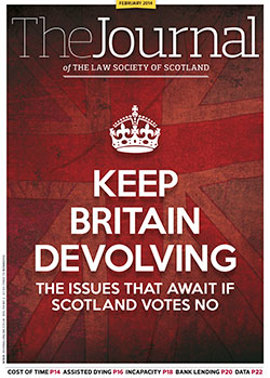How not to win business: a guide for professionals
“If you can’t explain it simply, you don’t understand it well enough.” (Albert Einstein)
Every day, excellent proposals are rejected because they are expressed in florid language which is meant to impress but has the opposite effect.
In his acclaimed book, Thinking Fast and Slow, the Nobel Prize-winning psychologist Daniel Kahneman introduces us to the concept of cognitive ease: the more easily we are able to comprehend a statement, the more likely we are to agree with it and think the author intelligent. Our first impressions are influenced more by how the language feels than by what it says.
This effect was proved by Kahneman’s Princeton colleague Danny Oppenheimer, in a 2005 paper wryly entitled: “Consequences of Erudite Use of Vernacular Utilised Irrespective of Necessity: problems of using long words needlessly”. As Kahneman puts it, Oppenheimer demonstrates that “couching ideas in pretentious language is taken as a sign of poor intelligence and low credibility”.
The ability to use language effectively is a professional’s core skill. We are proud of our ability, usually with reason.
But it is easy to believe mistakenly that our audience will be as wowed as we are by baroque paragraphs stuffed with long, complex or technical words. A large vocabulary is not a sign that we are smart.
Truly great communicators have the gift of keeping it simple. If, instead of proclaiming, “I have a dream today!” Martin Luther King had announced: “At this current moment in time I am possessed of a particular aspiration which is of quite an ambitious nature”, his place in history might be be slightly less secure.
Dolly Parton’s joke, “Honey, you have no idea how much money it takes to look this cheap,” has a resonance here. Simplicity is always the most difficult thing to achieve. Verbosity comes easily, but distilling the essence of a message is effortful. Even the Plain English Society finds it a challenge. Its official guidance makes a point of warning us to “avoid nominalisation”. I don’t know about you, but in my Glasgow suburb they speak of little else.
The concept of cognitive ease goes way beyond language. Other studies have shown that the use of high-quality paper, bright colours and an attractive font make a big difference to whether we agree or disagree at first with what we read.
These are easy to comply with. More difficult is Kahneman’s other insight that generally we find ideas expressed in rhyme attractive. For example, more people agree instinctively with “woes unite foes” than “woes unite enemies”.
Now, I am not saying there is no room for deploying poetry in proposals, but my instinct is that we should do it in the same way that porcupines make love – cautiously.
Whether one would enhance a pitch for defender litigation services by declaring: "If you’ve just received a writ, We can dig you out the..." is arguable. Nor would a corporate firm necessarily gain any advantage from: "Wanna make a load of dough? Let us do your IPO!"
The perils of verse aside, the message is clear: if your aim is sales success, best avoid pretentiousness.
Nothing stands still, and this column is no exception. From next month, with Mr Editor’s kind permission, its scope will widen to look not just at selling professional services, but many of the other strategic and management issues with which we are grappling. Its catchline is changing also, to “The Word of Gold”. Which is not pretentious at all. Obviously.
In this issue
- Cold case examination of early childhood evidence
- Incentivising employee ownership
- The diversity imperative
- Towards a more inclusive democracy
- Journal magazine Index 2013
- Reading for pleasure
- Opinion: Campbell Read
- Book reviews
- Profile
- President's column
- RoS's services for solicitors
- Issues for the Union
- Critical mass
- Is this where it ends?
- Testing capacity
- Making plans for auto-enrolment
- Loosening the purse strings
- Data: don't be caught out
- Punished enough?
- Prior statements practice
- Family business musings
- TUPE: armour not gold-plated?
- Pension policy - a vote winner?
- Scottish Solicitors' Discipline Tribunal
- In with the system
- Check and double-check
- Lender Exchange ahead
- Have you the capital?
- How not to win business: a guide for professionals
- Reflections from the Complaints Commission
- Ask Ash
- Danger spots
- It's the name of the game
- Law reform roundup
- Conference aspires to judicial diversity






